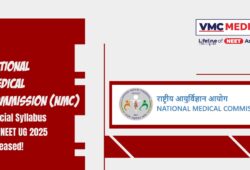Debunking Common Myths About NEET for Aspiring Doctors!
 Posted On
Posted On
293 total views, 1 views today
The National Eligibility cum Entrance Test (NEET) is an annual medical entrance exam organized by the National Testing Agency (NTA) in India. Every year, around 15-16 lakh students across the nation vie for a chance to pursue their dream of becoming a doctor through this competitive examination. However, amidst the popularity of NEET, several myths and misconceptions have emerged, clouding the aspirations of many aspiring medical students. In this blog, we will debunk these common myths surrounding NEET, providing clarity and guidance for those aspiring to crack this crucial examination.
Myth 1: Only Top-Grade Students Can Pursue Medicine Reality: Success in NEET is not solely dependent on academic brilliance. Many top rankers come from diverse backgrounds, proving that with dedicated preparation and perseverance, anyone can crack the exam. NEET’s minimum qualifying aggregate is 50%, emphasizing the importance of a strategic approach rather than just academic excellence.
Myth 2: NEET Is Only About Memorization, Not Understanding Reality: One of the most pervasive myths about NEET is that it revolves solely around memorization, with little emphasis on conceptual understanding. While rote learning may help in recalling facts, NEET demands a deeper understanding of concepts and their application in real-life scenarios. The examination assesses critical thinking, problem-solving abilities, and the capacity to analyze and interpret information. Therefore, aspirants should focus on conceptual clarity and application-oriented learning rather than relying solely on memorization techniques.
Myth 3: NEET Is Only for Geniuses Reality: While NEET is undoubtedly challenging due to the fierce competition, it is not exclusive to only the top achievers. With proper guidance, determination, and hard work, any aspiring medical student can qualify for the examination.
Myth 4: Medicine Requires Wealth Reality: Contrary to popular belief, pursuing medicine does not necessarily require substantial financial resources. Government schemes and scholarships exist to support deserving and meritorious candidates, making medical education accessible to a wider spectrum of students.
Myth 5: No Time for Enjoyment in Medicine Reality: While the pursuit of medicine demands dedication and hard work, the notion that it leaves no room for leisure is inaccurate. Balancing studies with hobbies and social activities is essential for overall well-being and a more effective learning experience.
Myth 6: Dropping a Year Is Inevitable Reality: Dropping a year to prepare for NEET is not a mandatory requirement for success. With thorough preparation and determination, one can achieve a competitive score without the need for an additional year.
Myth 7: Biology Outperforms Every Subject Reality: Although there is a lot of emphasis on biology in the NEET, physics and chemistry should also receive similar weight because they make up half of the question paper. Success requires a comprehensive preparation plan that addresses all three disciplines.
Myth 8: Non-stop Studying Is the Norm Reality: Contrary to popular belief, medical professionals lead balanced lives beyond studying. While studying is essential, taking breaks, pursuing hobbies, and socializing contribute to a healthy mind and overall well-being.
Myth 9: Attempting All Questions Is Recommended Reality: NEET’s negative marking system emphasizes the importance of calculated risks and accurate responses. It is advisable to prioritize accuracy over attempting all questions, as correct answers carry more weight than the sheer number of attempted questions.
Closing Thoughts:
Choosing a career in medicine is a noble and rewarding endeavor that requires dedication, perseverance, and a clear understanding of the path ahead. By debunking common myths surrounding NEET, aspiring doctors can approach their preparation with confidence and clarity, paving the way for a successful career in the medical field. Remember, the journey of studying medicine is not just about acquiring knowledge but also about committing to a profession dedicated to the well-being of others.




